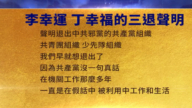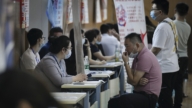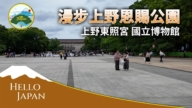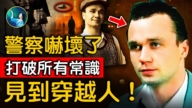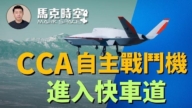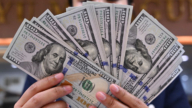【新唐人2012年1月6日訊】統計顯示,2011年,股民人均虧損至少4.2萬元以上,基金總虧損超過4000億元。與此形成鮮明對比的是,2011年通過「首次公開招股IPO」方式,培育了近千名億萬富豪。學者認為,中國沒有建立起信用體系,不具備跑股市基礎。
2011年中國股市大「跳水」,A股流通市值銳減近2萬9千億元,資金淨流失7868億元,上證綜合指數下跌22%。全年股民人均虧損超過4.2萬元,如果考慮持倉和空倉帳戶,今年參與炒股的股民實際虧損可能還要翻倍。
事實也如此。在新浪財經的2011年投資收益調查中,超過34%的股民被腰斬,89%出現投資虧損。
北京學者彭定鼎認為,原來的股市市值與價值不符,這是股市走向健康的表現。
彭定鼎 :「這是股市回歸正常,中國的股市一直是以投機的程序運作的。實際上股票的價格是由投機資本來決定的。現在是正常現象。」
自由撰稿人荊楚則認為,中國已經形成的股市泡沫必然要破滅,股市下跌是回到股市本身價值的表現。
不過,今年在億萬股民虧錢流淚的同時,中國股市卻批量製造了大批富翁,差不多每天“誕生”三個億萬富豪。A股也成為上市公司高管及其關聯人員的「提款機」,特別是中小板、創業板更是如此。今年以來,滬深兩市纍計套現資金已高達880億元。
經濟學者鞏勝利:「中國的股市上市的剎那間,都是一個圈錢的過程。所有的上市公司的一些股東,1000名造富的人員,這都是上市圈錢剎那的一些個別人,這是體制造成的。」
鞏勝利認為,中國近9成股民虧損,說明中國大部分是機構在操作,這包括大量的上市公司、股份制公司、風險基金和外來的投資資本。股份制公司一上市的剎那間就是造富過程。
統計資料也證明了這一點。2011年深滬兩市共有276支新股上市,為全球第一,但超過六成新股目前已「破發」—-在股票發行上市當天就跌破發行價。
彭定鼎則認為,是因為國有資產轉移製造了成千上萬的富翁。只要權利和資本相結合,就會出現這種現象,這在中國今後還會進行下去。
荊楚還表示,中國目前不具備跑股市的社會基礎,因為股市本來就是靠信用制度,而中共是靠坑矇拐騙、暴力威脅統治社會的,哪來的社會信用體系?
荊楚:「中國的情況比較特殊在哪裏,股市的投機性太強了。他不具備社會的信用體系。90%以上的人是投機,只有10%左右的人在投資,這樣的投機性,不出問題才怪呢。」
雖然中國股市慘不忍睹,但中國證監會主席郭樹清日前表示,不存在救市這個概念,市場有它自己的運行規律。
鞏勝利:「證監會主席郭樹清,他用的手段其實是非常有限的,因為,第一他不能動用國家的資本,第二,銀行業的現金流他也沒辦法動,第三,包括國家的主權基金他也沒有辦法動。」
鞏勝利說,股市健康需要制度來支撐,所以,郭樹清是沒有辦法做決定的。但2012股市下滑趨勢會更大。
而荊楚認為,救市需要把暗箱操作揭露出來,對坑矇拐騙的行為要懲罰,這就需要放開媒體,但這恰恰是中共的軟肋,它也不敢這麼做,所以根本無法救市。
新唐人記者秦雪、宋風、蕭宇採訪報導。
**************
China’ Stock 2011: Hundreds of Millions Lost Money
Statistics show that in 2011, the loss of China’s stock traders
exceeded over 42,000 RMB per capita.
The overall loss was over RMB 400 billion. In sharp contrast,
the IPO in 2011 generated nearly a thousand billionaires.
Scholars comment that China has not set up a credit system,
and is running the stock market without a foundation basis.
China’s stock market plunged in 2011.
A-share’ market value dropped by nearly RMB 2.9 trillion,
plus net capital loss of RMB 786.8 billion.
The Shanghai Composite Index fell by 22%.
The per capita loss exceeded over RMB 42,000 in the year.
If adding current holdings and positions that are already sold,
losses suffered by stock traders can double this amount.
Sina Finance’s 2011 investment Income survey shows,
that over 34% of stock investors suffered a 50% loss, with 89% ending up with some investment losses.
Beijing-based scholar Peng Dingding says that in the past,
the stock prices did not reflect their fair values;
(price decline) is necessary if stock market returns to a
normal status.
Peng Dingding: “This is the stock market returning to normal.
China’s stock market has long been running on speculation.
The stock prices in fact relied on speculative capital.
Now it is in a state of normalizing."
Freelance Jing Chu believes that the burst of China’s
stock market bubble is inevitable.
The fall of stock market demonstrates
a return to its correct value.
In 2011, hundreds of millions investors lost money,
while newly rich were mass-produced in China.
Almost every day there were three new billionaires.
A-share listed-companies became ATMs
for their executives and associates.
For the past year, Shanghai and Shenzhen cash funds
have accumulated up to RMB 88 billion.
Gong Shengli (Economist): “When stocks go public in China,
it is a process of instant money misappropriation.
The beneficiaries are shareholders of the listed companies,
and those who are in the top 1000 rich list,
This is caused by China’s institutional system."
Gong Shengli says, nearly 90% of China’s stock traders had
losses, indicating the stock market is operated by organizations.
They include large number of listed companies, joint-stock
companies, venture capital funds and foreign investment.
For example, a joint-stock company begins to make money
the instant it goes public.
According to 2011 statistics, Shenzhen and Shanghai had
a total of 276 IPOs, making them the world’s No. 1.
However, over 60% of these IPOs traded below issue price
on the same day of issuing and listing stocks.
Peng Dingding thinks that the transfer of state-owned assets
created thousands of millionaires.
The combination of officials’ power and capital gave rise
to this phenomenon, which will continue in the future.
Jing Chu adds that the current China
has no sound social basis to run stock market.
This is because the stock market
should be based on a credit system.
Chinese Communist Party (CCP) has long relied on cheating,
lies, and violence, how can it set up a social credit system?
Jing Chu: “China’s stock market exists due to speculations.
It has no credit system basis.
Over 90% of the stock traders are speculative,
only the rest 10% are true investors
With such an extent of speculation,
it would be strange if no problems occur."
China’s stock market is in dismay, yet Guo Shuqing, China
Securities Regulatory Commission’ (CSRC) head, disagrees.
Recently he said, there is no such a concept of rescuing
the market, the stock market has its own operating rules.
Gong Shengli: “Guo Shuqing’s approach is very limited.
Because firstly, he cannot tap the nation’s capital;
secondly, he can’t touch the bank’s cash flow; and thirdly,
he can’t use the country’s sovereignty wealth funds."
Gong Shengli says that the stock market needs to develop
on the basis of a healthy system.
In this sense, CSRC’s head has no way to make a decision.
Gong thinks in 2012, China’ stock market will decline further.
Jing Chu believes that rescuing the stock market requires
exposing covert operations and frauds, and punish cheaters.
However, this would mean China’s media to open up
and be free, which is a sensitive issue for CCP.
The regime dares not open up the media,
thus it is simply unable to rescue China’s stock market.
NTD reporters Qin Xue, Song Feng and Xiao Yu










